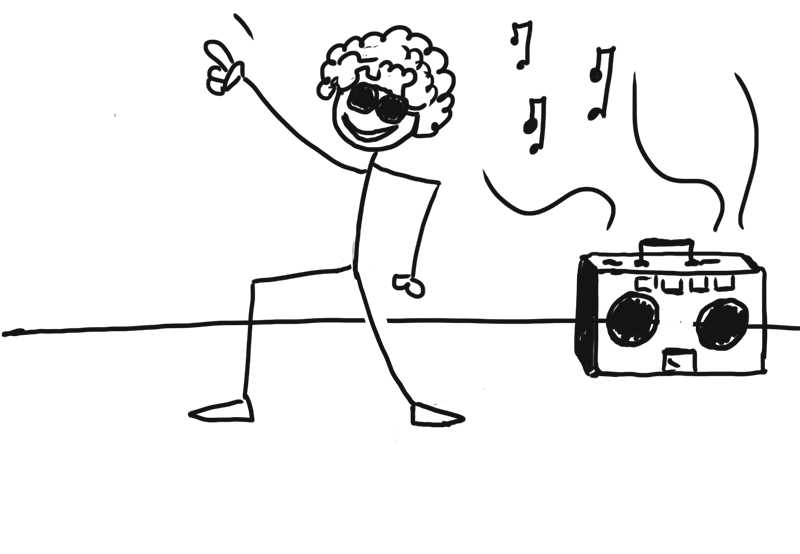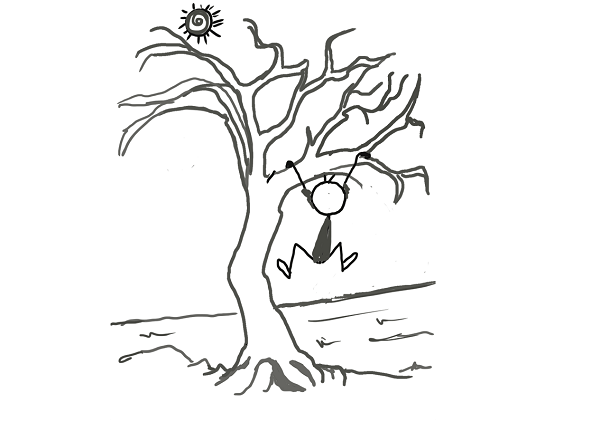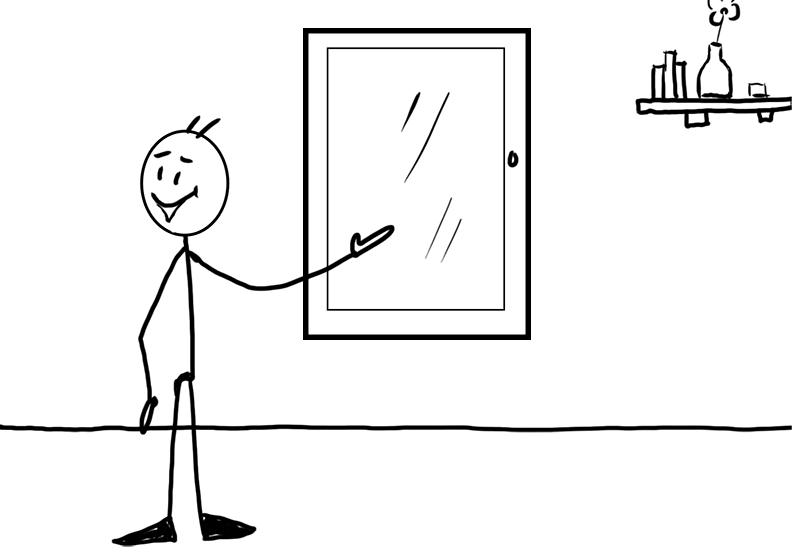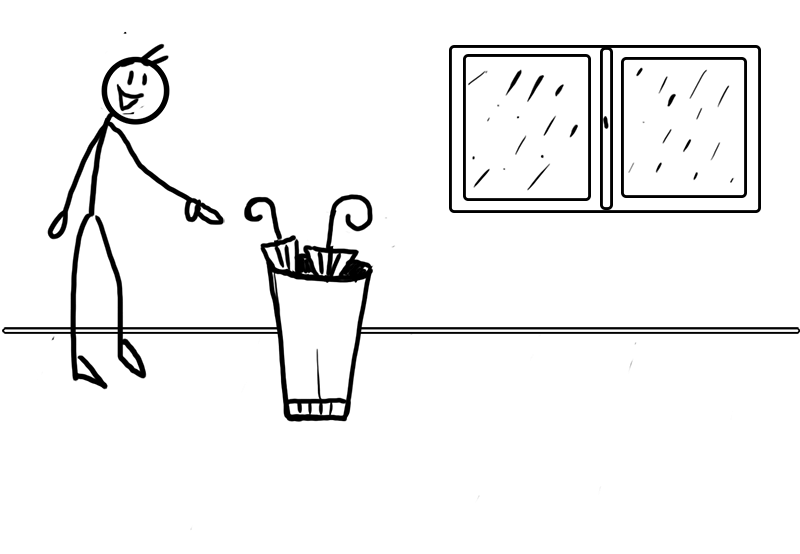Can - Could | May e To be able to
Can, may e to be able to sono modal verbs che esprimono il potere, in varie forme
CAN
Can traduce il presente indicativo del verbo, e si forma:
| AFFERMATIVO | NEGATIVO |
| Soggetto + can + inf. senza To I can dance | Sog. + can’t + inf. senza To I can't dance |
| INTERROGATIVO | INTERROGATIVO-NEGATIVO |
| Can + sogg. + inf. Senza To Can she dance? | Can’t + sogg. + inf. Senza To Can't she dance? |
| SHORT ANSWERE AFFERMATIVA | SHORT ANSWERE NEGATIVA |
| Yes, + pron. Pers. Soggetto | No, pron. Pers. Sogg + can’t |
| Can she dance? Yes she can | No, she can’t |
Can viene usato per:
esprimere possibilità o impossibilità | capacità o incapacità di fare qualcosa
I can come to your office at 9.40[tooltip]posso venire nel tuo ufficio alle 9.40[/tooltip]
Can you give me a lift please? Yes, of course[tooltip]puoi darmi un passaggio per favore? Si certo[/tooltip]
I am sorry but I can’t stay for supper[tooltip]mi spiace ma non posso rimanere per cena[/tooltip]
Susan can dance very well[tooltip]Susan sa ballare molto bene[/tooltip]

Per chiedere, dare, rifiutare un permesso
Can I have a glass of water, please?[tooltip]posso avere un bicchiere d’acqua, per favore?[/tooltip]
No, you can’t go out Jack. It’s too cold[tooltip]no, non puoi uscire Jack, fa troppo freddo[/tooltip]
can viene di solito usato con i verbi di percezione involontaria (dei sensi) o dell'intelletto come: to feel, to hear, to see, to smeel…
Can you hear me?[tooltip]mi senti?[/tooltip]
I can’t find my name on the list[tooltip]non trovo il mio nome sulla lista[/tooltip]
COULD
si usa per esprimere capacità o abilità nel passato ( remoto e imperfetto )
She couldn't sleep[tooltip]non ha potuto dormire[/tooltip]
She could swim very fast when she was young[tooltip]poteva nuotare velocemente quando era giovane[/tooltip]
Per esprimere un permesso ma molto più formale rispetto a can
Could I take the car?[tooltip]posso prendere la macchina?[/tooltip]
TO BE ABLE TO
Anche se be able to non è un modal verb lo mettiamo in questa lezione poichè traduce tutti gli altri tempi in cui can non ha una forma propria. Si usa quindi il to be coniugandolo al tempo desiderato.
Si forma:
soggetto + be + able + infinitive ( che comprende anche il "to")
I am able to read[tooltip]sono capace di leggere[/tooltip]
possiamo tradurlo con il significato di: potere, essere in grado di, sapere. è possibile usarlo in tutti i tempi :
he was able to swim ...[tooltip]era capace di nuotare[/tooltip]
he will be able to swim ...[tooltip]sarà capace di nuotare[/tooltip]
I have been able to swim ...[tooltip]sono stato in grado di nuotare[/tooltip]
be able to ha anche la forma infinita:
I would like to be able to speak French[tooltip]mi piacerebbe essere in grado di parlare francese[/tooltip]
Tabella dei tempi mancanti di Can
usiamo "to be able to" quando il tempo verbale non è presente
| TEMPI | C A N | TO BE ABLE TO |
| Simple Present | I can swim | I am able to swim. |
| Present Perfect Simple | ---- | I have been able to swim. |
| Simple Past | I could swim | I was able to swim. |
| Past Perfect Simple | ---- | I had been able to swim. |
| Future Simple | ---- | I will be able to swim. |
| Future Perfect Simple | ---- | I will have been able to swim. |
| Conditional | I could swim | I would be able to swim. |
| Infinitive | ---- | to be able to swim. |
| Gerund | ---- | being able to swim. |
| Participle | ---- | been able to swim. |
COULD vs I WAS ABLE TO
- si usa I was able to al posto di could:
si vuole enfatizzare che si è riusciti a cavarsela, "nonostante tutto"; in questo caso si può anche usare la forma managed + infinito.
I couldn't speak german, but I was able to/managed to communicate with the german ambassador[tooltip]non sapevo parlare tedesco, ma riuscì a comunicare con l'ambasciatore tedesco[/tooltip]
I didn't study, but I was able to/I managed to pass the text[tooltip]non avevo studiato, ma riuscì a passare l'esame[/tooltip]
oppure si vuole sottolineare l'impossibilità di compiere un'azione sia al Presente che al Passato;
Because of the terrible snowfall we weren't able to drive to John's yesterday[tooltip]a causa della terribile nevicata non siamo riusciti ad andare ieri in auto a casa di John[/tooltip]
- si usa could al posto di I was able to:
per parlare di un’abilità generica a fare qualche cosa
As a child I could climb tree really easily[tooltip]da bambino mi arrampicavo sugli alberi con estrema facilità[/tooltip]

si usa could (e non was/were able to) con i verbi di percezione o con quelli che indicano attività di pensiero ( to hear | to smell | to feel ... ):
Although I had a cold, I could smell the flowers.[tooltip]sebbene avessi il raffreddore, potei annusare i fiori[/tooltip]
MAY
è anche esso un verbo modale (modal verb) che esprime "potere", traduce il presente indicativo e si usa:
Per esprimere una supposizione o probabilità futura ( è / sarà possibile che )
I may join you tomorrow evening at the bar[tooltip]potrei/è probabile che possa raggiungervi domani sera al bar[/tooltip]
He may be 55 years old[tooltip]potrebbe aver 55 anni[/tooltip]
Per esprimere o ricevere un permesso; molto più formale di can
May I open the window[tooltip]potrei aprire la finestra?[/tooltip]

Per esprimere un augurio
May you get that job[tooltip]che tu possa ottenere quel posto di lavoro[/tooltip]
MIGHT
"Might" è usato principalmente per esprimere una possibilità possibilità. È usato spesso in frasi condizionali. In Gran Bretagna è anche impiegato per fare proposte e avanzare richieste, mentre quest'uso è decisamente più raro nell'inglese americano.
[possibility]
Your shoes might be in the living room[tooltip]le scarpe possono essere in salotto[/tooltip]
If you didn't have attend the lecture, you might go with us[tooltip]se non si dispone di partecipare alla conferenza, si potrebbe andare con noi[/tooltip]
[conditional]
You might take the train instead of the car[tooltip]si potrebbe prendere il treno al posto dell'auto[/tooltip]
[request]
Might I borrow your umbrella?[tooltip]potrei prendere in prestito l'ombrello?[/tooltip]

Tabella Might (possibilità)
Might
(possibilità) | positivo | negativo |
| presente | She might be on the bus. I think her bike is having problems. | She might not be on the bus. She might be walking home. |
| passato | She might have taken the bus. I'm not sure how she got to work. | She might not have taken the bus. She might have walked home. |
| futuro | She might take the bus to get home. I don't think John will be able to give her a ride | She might not take the bus. She might get a ride from John. |
Tabella Might (conditional)
Might
(conditional) | positivo | negativo |
| presente | If I took the train, I might actually be punctual. | Even if I took the train, I might not be punctual. |
| passato | If I had taken the train, I might actually have been punctual. | Even if I had taken the train, I might not have been punctual. |
| futuro | If I entered the contest tomorrow, I might actually win.
Unfortunately, I can't enter it. | Even if I took the contest tomorrow, I might not be punctual. |
Tabella Might (suggestion)
Might
(suggestion) | positivo | negativo |
| presente | NO PRESENT FORM | NO PRESENT FORM |
| passato | You might have tried the cocktail | PAST FORM UNCOMMON |
| futuro | You might try the cocktail | You might not want to drink the cocktail. It's very strong |
Tabella Might (possibilità)
Might
(possibilità) | positivo | negativo |
| presente | Might I have something to eat? | NEGATIVE FORMS UNCOMMON |
| passato | - | NEGATIVE FORMS UNCOMMON |
| futuro | Requests usually refer to the near future | NEGATIVE FORMS UNCOMMON |
MAY & MIGHT ( formazione )
si possono formare:
may/ might + forma base del verbo senza to
he may run fast[tooltip]puoi correre veloce[/tooltip]
he might run fast[tooltip]potrebbe correre velocemente[/tooltip]
may/ might + forma base progressiva [ che sarebbe: be + -ing ]
He might be sleeping[tooltip]potrebbe star dormendo[/tooltip]
nel passato, may e might sono seguiti da have + participio passato.
Mark isn’t in his office. He may have gone home[tooltip]Mark non è in ufficio. potrebbe essere tornato a casa[/tooltip]
Mark isn’t in his office. He might have gone home[tooltip]Mark non è in ufficio. potrebbe essere tornato a casa[/tooltip]
MIGHT NOT vs COULD NOT
"Might not" suggerisce che non si sa se qualcosa accadrà. "Could not" suggerisce che è impossibile che qualcosa accada.
Tom might not have the ticket. - Maybe he does not have the ticket[tooltip]Tom potrebbe non avere il biglietto[/tooltip]
Tom could not have the Ticket. - It is impossible that he has the ticket[tooltip]Tom non poteva avere il biglietto[/tooltip]